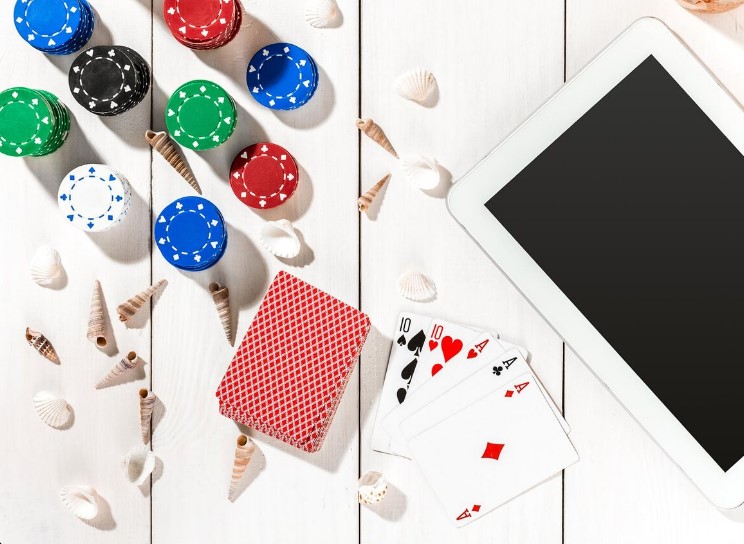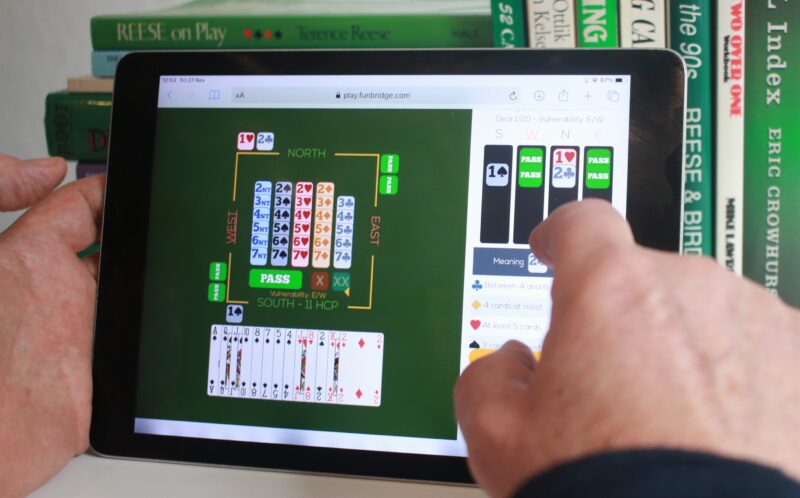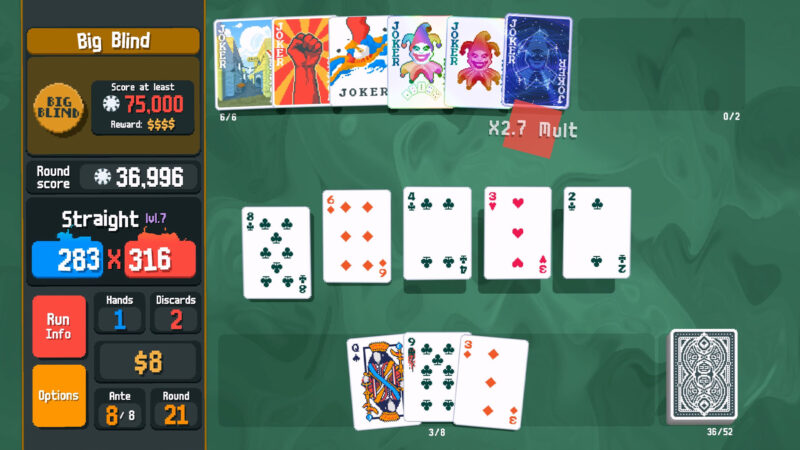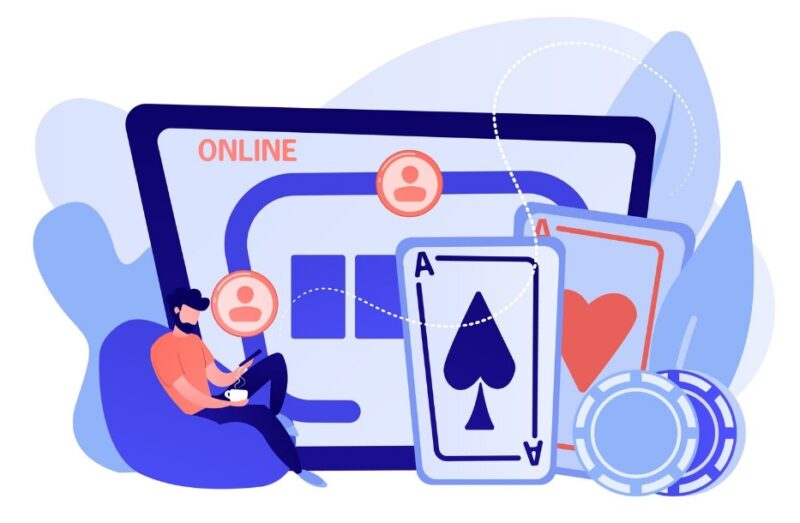Card games have been shaping strategic minds for centuries. Now that most of them have gone digital, they’re not only a source of entertainment but also a serious workout for memory, logic, and decision-making.
The best online card games are not about luck. They reward focus, adaptability, and a long-term grasp of how patterns emerge over hundreds of hands.
Whether it’s poker’s psychological warfare, bridge’s teamwork precision, or collectible card games that require deck-building mastery, skill always wins over randomness in the long run.
Here’s a breakdown of the top online card games that actually sharpen your mind and train real-world abilities.
Poker

Online poker is still the undisputed king of skill-based card games. The luck of the draw matters, but decisions over time matter more.
Every move – whether you fold, bet, raise, or check – builds a pattern of habits and instincts that eventually separate the good from the great.
Why Poker Builds Real Skill
Poker is not about gambling away chips. It’s about information management. Each hand forces players to assess incomplete data, calculate odds, and read behavior, even when the “behavior” is digital.
When we compare poker fundamentals to other skill-based games, a guide on pusoy ranking illustrates how similar decision-making structures apply across formats.
Key skills that poker develops:
- Risk assessment: Every bet is a test of probability and psychology.
- Pattern recognition: Over time, players pick up on betting trends and opponent rhythms.
- Emotional control: Staying calm after bad beats is a learned discipline.
- Bankroll management: Knowing when to walk away is as important as knowing when to push.
Notable Online Poker Variants
| Variant | Focus | Skill Level | Platform Examples |
| Texas Hold’em | Reading opponents, probability | Moderate to high | PokerStars, GGPoker |
| Omaha | Multi-hand strategy, value judgment | High | 888poker, PartyPoker |
| Seven-Card Stud | Memory-based hand tracking | Medium | WSOP app |
Online tournaments and cash tables allow players to test skill without sitting in smoky rooms. For anyone serious about improving their logical processing under pressure, few games match poker’s mental demand.
Bridge

Bridge remains one of the most intellectually challenging card games on Earth. Played by four people in pairs, it’s all about coordination and coded communication through bidding systems.
Online platforms now make it possible to play with partners from anywhere, often with ranking ladders and live tournaments.
What Bridge Teaches
- Team strategy: Partners must plan plays several rounds in advance without direct speech.
- Logical inference: Each bid reveals something about your hand to your partner and your opponents.
- Memory precision: Keeping track of every played card is crucial.
Bridge is unique because it blends math and psychology with a social component. The most successful teams play thousands of hands together, refining silent communication to near telepathy.
Online versions like Bridge Base Online make this old-school game globally competitive again.
Hearthstone
Blizzard’s Hearthstone is not just a fantasy game – it’s a strategy lab wrapped in color and sound. Players create decks from hundreds of cards, each with distinct powers, costs, and synergies.
Success depends on thinking several moves ahead, anticipating counters, and predicting what your opponent might play next.
Skills Gained Through Hearthstone
- Strategic foresight: Every card drawn changes probabilities and alters future plays.
- Adaptation: Since decks are always evolving, players must re-learn strategies regularly.
- Analytical thinking: Card combinations act like equations; the strongest decks balance cost, tempo, and payoff.
What makes Hearthstone skill-intensive is its dynamic metagame. Once you master one deck, the environment shifts, forcing fresh thinking. It’s chess with special effects and a learning curve that rewards experimentation.
Magic: The Gathering Arena
Before digital collectible card games existed, Magic: The Gathering defined the genre. The online version, MTG Arena, preserves its original complexity while allowing global competition. Every card has potential to shift momentum, and the sheer number of interactions forces precise thinking.
Core Skills in Magic: The Gathering Arena
- Resource management: Players balance land, mana, and timing with precision.
- Meta analysis: Strong decks emerge from data-driven analysis of win rates.
- Long-term planning: A match can hinge on choices made five turns earlier.
MTG Arena rewards players who study probabilities and deck synergy like scientists. Professionals often track performance metrics across hundreds of matches to optimize results. It’s one of the few games where statistics, math, and creativity blend seamlessly.
Gwent
Born inside The Witcher 3, Gwent evolved into a standalone competitive card game with a loyal fan base. Its rules differ from traditional CCGs, focusing on best-of-three rounds instead of health depletion.
Players must think carefully about when to commit resources since winning two rounds – not all – is enough to take the match.
What Gwent Trains You To Do
- Resource pacing: Deciding when to sacrifice a round can secure the next.
- Bluffing: The game thrives on misdirection, tempting opponents to overcommit.
- Tactical patience: The strongest players hold key cards until the perfect moment.
Gwent rewards subtlety over brute force. The more you play, the more you learn how restraint often wins over aggression. It’s a game that quietly teaches discipline.
Solitaire Variants

Solitaire might seem simple, but in its digital forms, it builds essential mental endurance. Variants like Spider Solitaire, FreeCell, and Pyramid turn pattern recognition into an exact science.
Online leaderboards and timed modes push players to think faster and plan more efficiently.
Cognitive Benefits
- Sequential reasoning: Moves must be planned several steps ahead.
- Focus retention: Long sessions train sustained attention.
- Visual processing: Spotting card sequences sharpens perceptual speed.
| Variant | Primary Skill Developed | Difficulty | Platform Example |
| FreeCell | Logical sequencing | Medium | Microsoft Solitaire Collection |
| Spider | Multi-step planning | High | MobilityWare |
| Klondike | Pattern recognition | Easy | Arkadium |
While solitaire lacks the social drama of poker or bridge, its repetitive logic loops make it ideal for daily mental sharpening.
Rummy
Online rummy has exploded in popularity, especially on platforms that blend casual play with tournaments. Its simple goal – create valid sets and sequences – hides deep skill potential.
Success comes from tracking discards, predicting other players’ needs, and balancing offense with defense.
How Rummy Builds Skill
- Memory tracking: Remembering which cards opponents pick or drop shapes your decisions.
- Probability intuition: You learn to sense what’s statistically likely to appear.
- Speed strategy: Timed online matches test composure under countdown pressure.
Rummy hones mental reflexes more than raw calculation. Players who practice regularly begin to anticipate flow rather than react to it.
Spades
Spades, a staple of family gatherings, thrives online as a skill-driven team game. Like bridge, it rewards coordination and strategic bidding. Winning requires mutual prediction, timing, and risk calibration.
What Makes Spades Skill-Oriented
- Predictive reasoning: You estimate trick counts before cards are even played.
- Team coordination: Silent cooperation builds synergy.
- Adaptation: Adjusting to changing suits and shifting odds keeps the game fluid.
Platforms like Trickster Cards and Pogo maintain large Spades communities where experience matters far more than luck.
Skill-Building Beyond the Screen
Each of these games trains real-world cognitive and emotional abilities. They develop pattern recognition, probabilistic thinking, self-regulation, and risk awareness.
Over time, experienced players often transfer those habits into daily decision-making – budgeting, negotiations, even professional strategy.
Shared Mental Gains Across Games
- Short-term memory: Remembering played cards or sequences.
- Mathematical reasoning: Calculating odds and expectations.
- Emotional discipline: Managing tension and delayed gratification.
- Metacognition: Reflecting on one’s own decisions and learning patterns.
Those gains don’t come from passive play. Skill grows through reflection, reviewing past games, and analyzing choices instead of blaming luck.
How to Build Skill While Playing Online

It’s easy to play casually, but structured improvement requires conscious effort. A few practices make the difference between random play and real progress.
Practical Tips
- Track your sessions. Keep notes on win rates, mistakes, and strong moves.
- Review replays. Many platforms allow match reviews – a study of where the momentum shifted.
- Play slower modes. Give yourself time to think through alternatives.
- Mix formats. Alternate between casual and ranked games to stay flexible.
- Learn from others. Watching high-ranked players or streamers accelerates growth.
Card games reward process more than outcome. Over time, consistency and pattern study replace impulsive moves.
The Quiet Intelligence Behind Card Play
Every online card game worth its salt sharpens something: memory, timing, analysis, or composure. The randomness of a shuffled deck only tests how you manage uncertainty. Those who treat each session as mental training tend to improve fastest, not only in the game but in life decisions where calculation and calm judgment matter most.
Skill in card games is cumulative. Every misplay teaches something. Every round tests whether you’ve learned from the last. In that sense, online card gaming, when done with intention, becomes a long-term school for the mind – one that teaches patience, awareness, and quiet confidence that no coin flip can buy.

